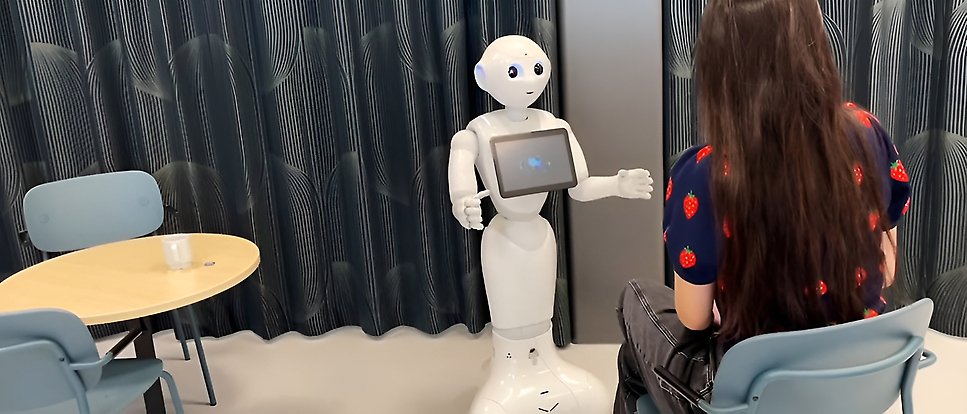Social robots can help breaking norms

Katie Winkle conducts research on social robots and is interested in how the design and behavior of robots affect us.
How can we ensure that we build robots that are useful, trustworthy and support human flourishing? In UppTalk, human-machine interaction researcher Katie Winkle talks about how the design of social robots might be a tool to make safer and more inclusive social robots for the benefit of us all.
Watch the episode: Can social robots help breaking norms and widening stereotypes?
Social robots can take different forms and functions. It is likely that you use some kind of robot-like tool in your everyday life, perhaps in the form of Siri, GPS or Chat GPT. Katie Winkle, assistant professor, conducts research on social robots and is interested in how the design and behavior of robots affect us.
"Traditionally, the robots we use in everyday life, such as Siri, have been designed as submissive female assistants who do not seem to react even if the user is rude or shouts. The robot answers just as politely regardless. I've studied how people react if the robot doesn't respond as expected, but in a sassy, ‘bad-ass way’," says Katie Winkle.
Responding in three different ways
One of Katie's early studies involved a test where people said something provocative to the robot, which could then respond in three different ways: politely, fact-based or aggressively. The study then opened the door to further studies of inclusion in robotics.
In this conversation, Katie Winkle talks about which of the three personalities users preferred and how her field of interest has broadened. Join us in the Social Robotics Lab and meet Katie and the robots Furhat, Nao and Pepper.
Nina Lund
Social Robotics Lab
At Uppsala Social Robotics lab researchers aim to design and develop robots that learn to interact socially with humans and bring benefits to the society we live in, for example in application areas such as education, e-learning, healthcare and assistive technology.
UppTalk
UppTalk is a popular science seminar series via Zoom where you get to enjoy interesting conversations with researchers from Uppsala University. The seminars revolve around socially relevant topics and are broadcast live from mainly Uppsala University's Studio Blåsenhus. All talks are recorded and can be accessed afterwards via Uppsala University's YouTube channel and on the UppTalk website.
